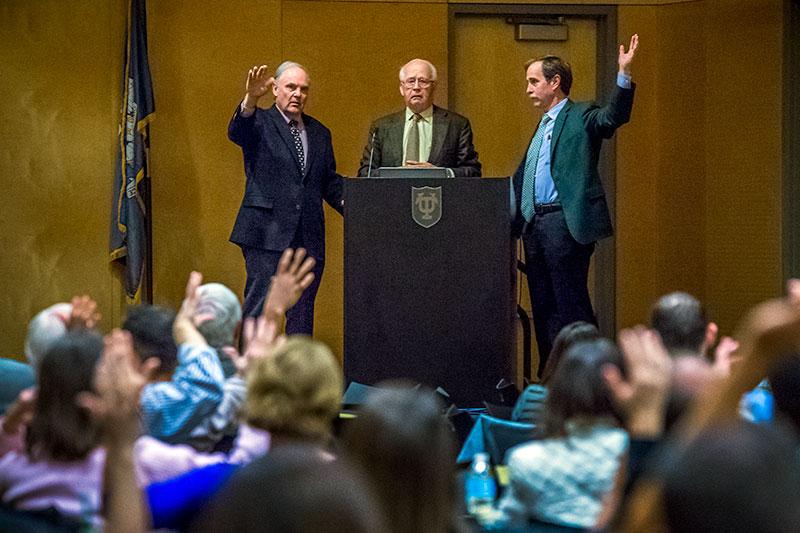Getting patients back in the game
With nearly 8 million student-athletes currently attending high school, participation in organized sports continues to rise nationwide. Consequently, the need to keep these young competitors healthy reaches renewed importance. During the first annual Andrews Endowed Lectureship at Tulane University, a leading group of sports medicine specialists led discussions on injury prevention and recovery.
Hosted by the Tulane University Department of Orthopaedic Surgery and the Tulane Institute of Sports Medicine, the event took place in the Lavin-Bernick Center on the uptown campus and included presentations from Dr. Felix Savoie, Dr. W. Ben Kibler, Dr. James Andrews and physical therapist Andre Labbe.
“I’m honored to be in this group. We hope to share and find better ways to take care of athletes,” said Kibler, medical director of the Shoulder Center of Kentucky.
“They’re experiencing adult sports injuries at 13 years old; you never used to see that.”
— Dr. James Andrews, medical director and orthopaedic surgeon at The Andrews Institute
The lectureship was funded by Andrews, a Louisiana native who completed his residency at the Tulane University School of Medicine in 1972. Renowned for his work as an orthopaedic surgeon, Andrews is currently medical director of the Andrews Institute for Orthopaedics & Sports Medicine.
“Children have become vulnerable in the $5 billion a year youth sports industry,” said Andrews, as he discussed how young baseball players could prevent throwing injuries.
Citing that over 3.5 million athletes under the age of 14 are being treated annually for sports injuries, Andrews discussed two major causes behind the epidemic — yearlong specialization in a sport and training young players as if they are professional athletes.
As parents and athletes feel pressure to compete at all costs, players are undergoing intense training and specializing in sports at an earlier age, raising the risks for injuries to occur.
In order to diminish these risks, Andrews recommends several strategies, including encouraging players to speak up when hurt and having coaches certified in First Aid, CPR and AED use.
“The goal is to not see any of these kids in our office,” said Savoie, chairman of the Tulane Department of Orthopaedic Surgery.

